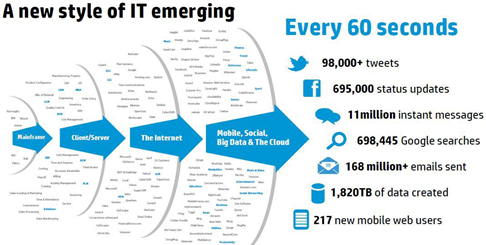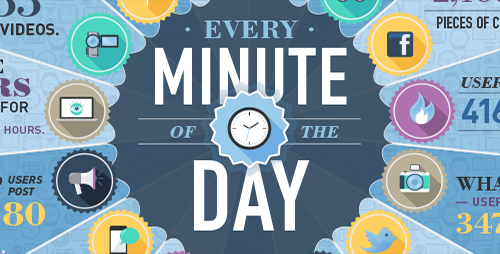Ralph Losey of Jackson Lewis, LLP: eDiscovery Trends

This is the seventh of the 2015 LegalTech New York (LTNY) Thought Leader Interview series. eDiscovery Daily interviewed several thought leaders at LTNY this year and generally asked each of them the following questions:
- What are your general observations about LTNY this year and how it fits into emerging trends? Do you think American Lawyer Media (ALM) should consider moving LTNY to a different time of year to minimize travel disruptions due to weather?
- After our discussion last year regarding the new amendments to discovery provisions of the Federal Rules of Civil Procedure, additional changes were made to Rule 37(e). Do you see those changes as being positive and do you see the new amendments passing through Congress this year?
- Last year, most thought leaders agreed that, despite numerous resources in the industry, most attorneys still don’t know a lot about eDiscovery. Do you think anything has been done in the past year to improve the situation?
- What are you working on that you’d like our readers to know about?
Today’s thought leader is Ralph Losey. Ralph is an attorney in private practice with the law firm of Jackson Lewis, LLP, where he is a Shareholder and the firm’s National e-Discovery Counsel. Ralph is also a prolific author of eDiscovery books and articles, the principal author and publisher of the popular e-Discovery Team® Blog, founder and owner of an online training program, e-Discovery Team Training, with attorney and technical students all over the world, founder of the new Electronic Discovery Best Practices (EDBP) lawyer-centric work flow model. Ralph is also the publisher of LegalSearchScience.com and PreSuit.com on predictive coding methods and applications.
What are your general observations about LTNY this year and how it fits into emerging trends? Do you think American Lawyer Media (ALM) should consider moving LTNY to a different time of year to minimize travel disruptions due to weather?
It seems to me that attendance is up. I got here a little late, but I was only delayed two hours – I know that some were delayed as much as two days. Despite that, I think it was a good turnout. When I was walking the floor, there seemed to be crowds of people, so I think it was pretty well attended this year.
The programming this year had a slightly different orientation. I had a presentation on predictive coding (which I’ve presented on predictive coding topics for the last four years or so) and, in past years, it seemed that my presentation would be one of a dozen or more at the show whereas this year, it seemed like there were only three or four presentations on predictive coding. So, maybe the “fad” part of predictive coding is over and more people are into the topic in depth. The presentation that we gave was more on an advanced level – we didn’t discuss whether or not you should use it or review the basics; instead, we went into a deeper level. And that was fun for me to do.
Instead, I think the hot item this year was information governance, which is somewhat of a general “catch-all”. Then, the other two things that I saw in the presentations and in the “buzz” on the floor when talking to people were two things that I’m very concerned about as well: security (cybersecurity is the word I prefer to use) and privacy. I think those are two long-term issues that have been brewing and are now coming to the forefront where lawyers are realizing that these are important issues that are coming out of technology.
As for whether they should consider moving the show, well, I’m from Florida and I love to see snow every now and then – it’s a real rarity where I live. I left a 72 degree paradise to arrive here and it was 18 degrees. In spite of that, I think the show should remain in New York at this time of year and I fully believe that this is the event of the year. If anything, I think it’s growing in importance. For me, the older I get, the more I try to limit my travel and appearances and this would be one that I would not take off my list of must attend events, if for no other reason than because everyone is here. I love walking around and running into judges and old friends, so that is one of the reasons that I think it is the premier event of the year.
After our discussion last year regarding the new amendments to discovery provisions of the Federal Rules of Civil Procedure, additional changes were made to Rule 37(e). Do you see those changes as being positive and do you see the new amendments passing through Congress this year?
I don’t think there will be any issues passing the rules amendments through Congress, I think they will sail through and be part of our rules soon enough. I don’t really feel that the rules changes will make that much difference. I just recently litigated the existing Rule 37(e) and in my memos, I quoted the new Rule 37(e). At the end of the day, it didn’t really make any difference in the court’s adjudication whether it was the old rule or the new rule. So, I still continue to think that the changes are a positive move, but I don’t think they will be a savior or “cure-all” that people might hope. In that sense, I may be a little pessimistic about it. I’ve seen rules changes before, such as ’06.
This leads to a slightly different topic, but I ultimately feel that all these (as I call them) cosmetic rules changes will fail. I think that, in maybe ten years, there is going to be a major overhaul. I think the rules committee and the federal judges will realize that you can’t just do these periodic slight “tweak” of the rules. I think they will eventually consider and, possibly enact, a complete overhaul or our rules and procedures – focused on discovery. I don’t think discovery is working and I don’t think the discovery rules are really working and I don’t think that they can be patched up. They’ve been trying to patch up discovery for 35 years now with various rules changes and they’ve never worked. I have no reason to believe that 2015 will be any different than 1989 or before that. I think that they’re going to be forced to take drastic measures. That’s my prediction – we’ll see.
Last year, most thought leaders agreed that, despite numerous resources in the industry, most attorneys still don’t know a lot about eDiscovery. Do you think anything has been done in the past year to improve the situation?
In my world (which is a fairly large world, but it’s all in employment law), I see employment law cases all over the country of an asymmetric type: small plaintiff against the big corporation. The change that I see is mainly on the corporation defendant level – they are getting their acts together much better on the preservation front. In fact, all across the whole spectrum, the corporations are slowly but surely getting there. There is still a long way to go, but I do see improvement. I see improvement in the defense bar in general and, of course, with my own attorneys, which for five years I have put through intensive training. We have 800 lawyers and I would say that 600 of them are litigators, so, after five years, there are certain things that have penetrated and they have developed a core level of competence, particularly on preservation. Preservation is in every case, so that’s the most important thing to get down pat and I have seen definite improvement in that.
Now, on the plaintiff side, it’s still amazingly slow. The plaintiffs’ bar is slow to catch up, they are still untrained and, for the most part, unknowledgeable. And, some of the ones that are active in eDiscovery are using it as a tool to be a “pain in the ass” really. They’re not doing it for true discovery; instead, they’re doing it more as a harassment tactic. And, they don’t really know what they’re doing. So, we have to deal with that. On the other hand, we are seeing more and more sincere plaintiff’s counsel too, so it’s not all bad. Just not as many as we would like, since cooperation really is the best way to go.
But, we are also seeing situations where we’re making requests and wanting to see the Facebook pages and wanting to see the plaintiff’s email. Although it is still asymmetric, there essentially isn’t a plaintiff in the world that doesn’t have an email account. We still need discovery from them. The impact is what I call the “boomerang effect” – be careful what you throw out there, it can come back right at you. When the tables are turned and we ask the plaintiff’s counsel “what are you doing about preservation”, we get big blank stares. In a way, the fact that the plaintiffs have their own ESI has leveled the playing field a bit.
What are you working on that you’d like our readers to know about?
I’d like the readers to check out what I’m working on to create a best practices and standards for the legal practice of electronic discovery, and I call that Electronic Discovery Best Practices (EDBP). It’s not EDRM, it’s about what lawyers do. That’s what I’ve been doing for the past eight years, helping lawyers do electronic discovery. That continues to evolve.
The thing that’s new that I’ve been working on is cybersecurity. So, one of my websites is eDiscoverySecurity.com where I talk about the need for lawyers and companies when they’re doing eDiscovery to be concerned about keeping it secure. We’re often assembling very sensitive documents, which are a target for hackers, including foreign governments. The Chinese are famous for this and law firms are being hacked. The final thing that I would point out is that I’ve got HackerLaw.org, which is another new web site that I’ve created associated with my interest in cybersecurity. I consider myself a “hacker” in the positive sense of someone who is hands on, working with computers – that’s what “hacker” really means. But, there’s also the “dark hat” hackers that are my enemies and there’s a whole war going on out there. This site pertains to that and also talks about the positive side of being a hacker (for example, Steve Jobs and Steve Wozniak were proud to call themselves “hackers”). Believe it or not, the term “hacker” started out in model railroading – the famous computer lab at MIT grew out of the model railroad club at MIT. They were hands on building railroad tracks and, out of that grew the whole computer culture – little known historical point.
As for the e-Discovery Team® Blog, the three part series that I just finished on ei-Recall was the hardest blog post series that I have ever written. I put a lot of time into it as a public service because I worried about what is the best way to confirm and verify your results when you’re doing a review. I call it “Quality Assurance” and there are so many ways to do it that I came up with this approach for recall and consulted a number of scientists during the process. I didn’t do it because I’m trying to sell anything. But, I hope it will become the de-facto standard and I wrote it, at length, so that anybody with a little study can do it on their own. People have started to tell me that they have studied the blog and are starting to do it, so that’s encouraging. The whole point of “I’ve attained 80% recall” – that’s wrong, you can never know exact recall, it has to be a range. I’ve had some scientists after the fact tell me that’s what they’ve been doing all along, they just didn’t call it “ei-Recall”. You only calculate it at the end of a project, but that’s when you need to do it. So, I think it has been one of my major accomplishments and I hope everyone will check it out.
Thanks, Ralph, for participating in the interview!
And to the readers, as always, please share any comments you might have or if you’d like to know more about a particular topic!
Disclaimer: The views represented herein are exclusively the views of the author, and do not necessarily represent the views held by CloudNine. eDiscovery Daily is made available by CloudNine solely for educational purposes to provide general information about general eDiscovery principles and not to provide specific legal advice applicable to any particular circumstance. eDiscoveryDaily should not be used as a substitute for competent legal advice from a lawyer you have retained and who has agreed to represent you.






